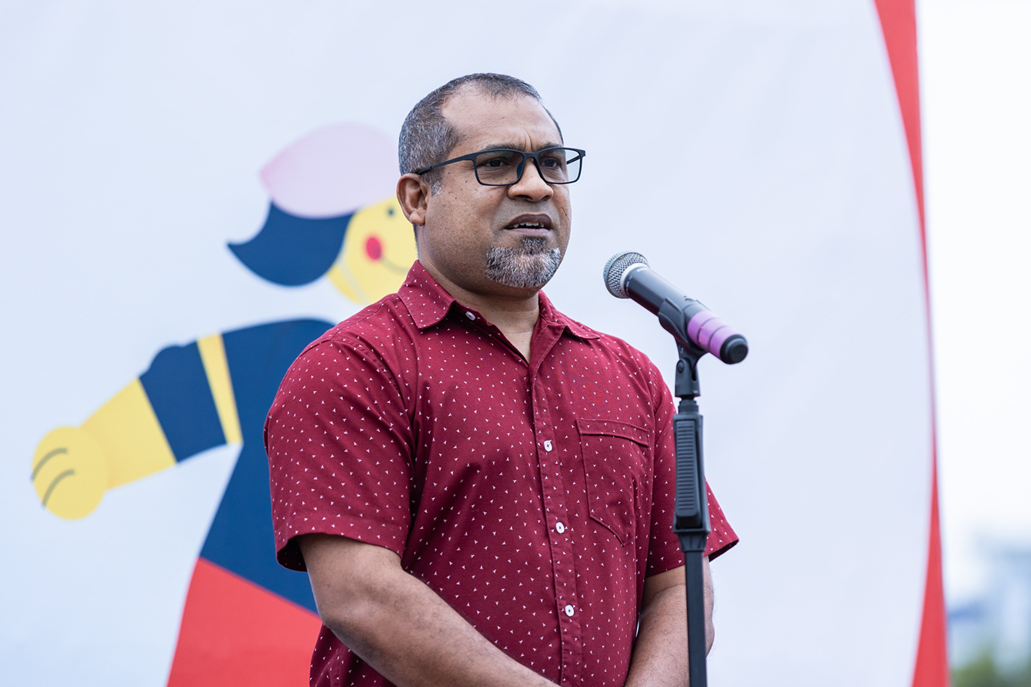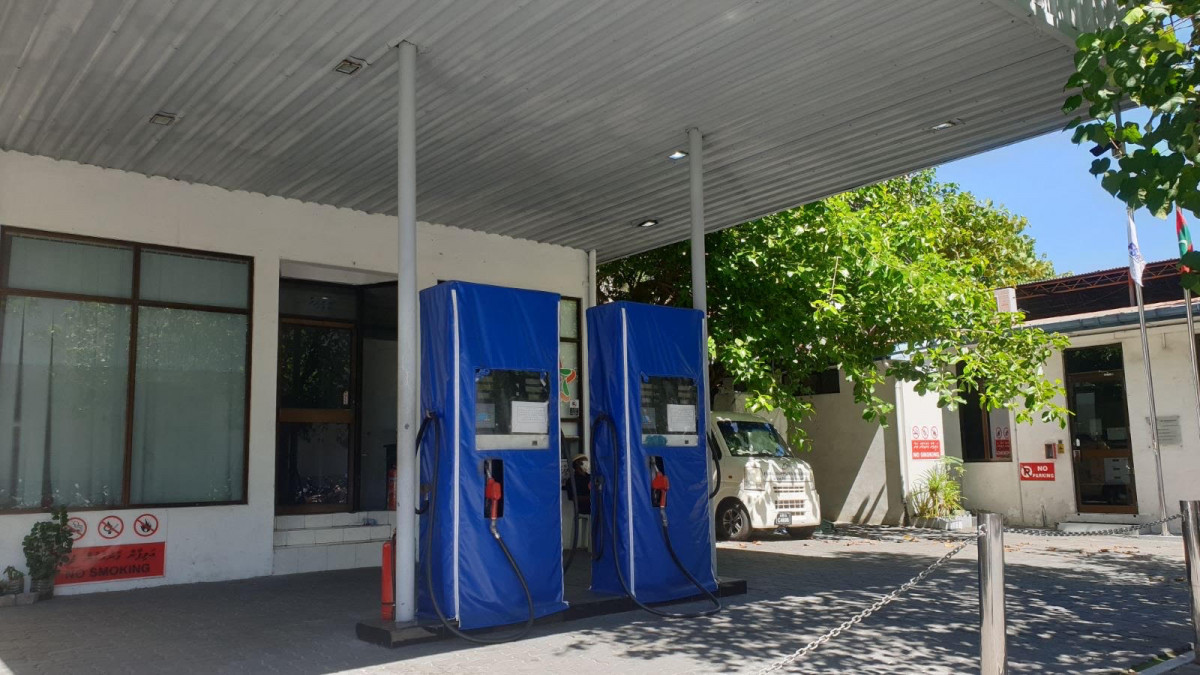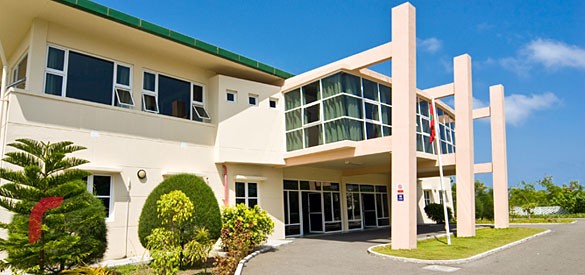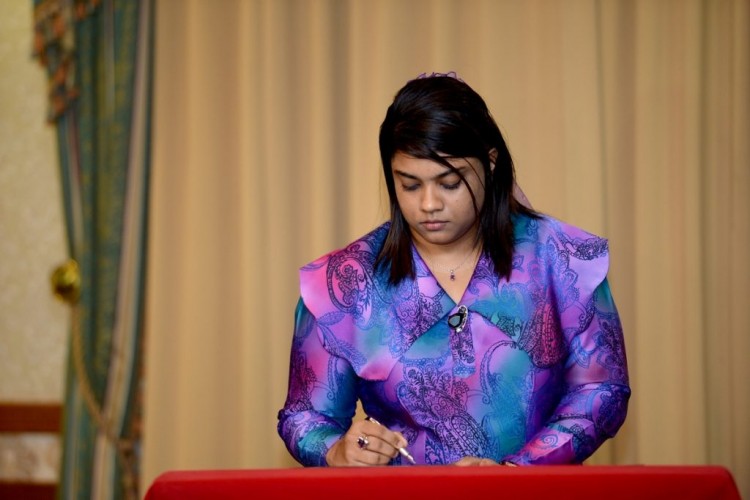Citizens’ dangerous misconception; Covid-19 is not a common cold!
Traffic movement has not seen a significant improvement

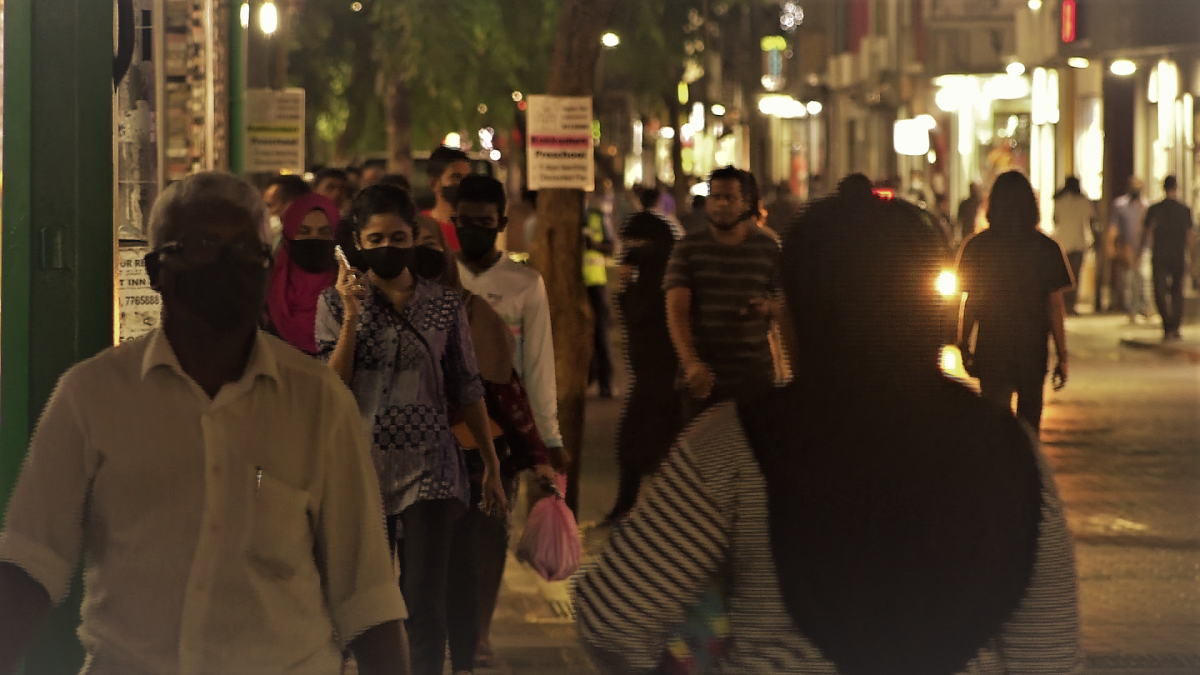
Streets of the Maldives populous capital city, Malé
If not the surge in Covid-19 fatalities, one would assume the blaring sirens of ambulances speeding through the city, paramedics dressed head-to-toe in PPE working hastily to transport wheezing patients to the medical facility, hospitals running out of beds or even surging hospital admissions would be enough for citizens to take the virus seriously.
However, at a time Maldives is grappling the third wave of the fatal Covid-19 pandemic, the citizens are dangerously mistaking it to be a “common cold”.
Daily infections have been spiraling across the populous Greater Malé Region since before the beginning of the new year, leaving healthcare officials at the verge of a breakdown, despite authorities’ massive efforts to re-impose restrictive measures to safeguard against the virus, the gravity of the pandemic has been lost on citizens.
In a presser, Dr. Ahmed Shaheed, member of the Health Emergency Operations Center (HEOC)’s Technical Advisory Group (TAG) stressed that citizens are under the dangerously misleading delusion that Covid-19 is a common cold.
While authorities imposed a vehicle ban across the capital aiming to restrict movement on the congested streets, it has perceptibly been to no avail, proven ineffective in reducing vehicle movement. Citizens continue to violate rules during restricted hours, Dr. Shaheed stressed that the citizens have also been conducting household visits like they would “any normal day”.
HEOC Spokesperson, Dr. Nazla Rafeeq has reiterated their intention to avoid a second lockdown and control the Covid-19 peak with current measures, owing to the fact that a lockdown will lead to “major” economic and social losses. HEOC has since assured that stricter measures are to be imposed, effective Friday.
Before the third, year-end wave, hospital ICUs had less than three patients and nurses could relax every once in a while, now, it is a “frenzy”. With a spike in case count, hospitalizations have also increased in comparison to what was observed during the second Covid-19 wave.
Similarly, Covid-19 fatalities have also doubled since January 2021, where four deaths were observed. So far in February, authorities have reported eight deaths.
The Health Protection Agency (HPA) has also noticed that fewer people visit the flu clinic now despite having Covid-19 symptoms, which in turns show a lesser flu positivity rate despite daily infections spiking.
During the second wave of Covid-19 observed after authorities began lifting the lockdown imposed across the capital region on 15 April last year, the highest number of cases to have been reported per week was a little over 900, for no more than two weeks. However, during the current peak, over 1,000 new cases are being reported weekly. Over 1,000 daily cases were reported the past week as well.
Covid-19 began sweeping across the globe in late 2019 and was followed by a wave of constant fear and anxiety that people have been unable to push past, even at the comfort of home. A little over a year later, it is no surprise that the people would be mentally exhausted especially being deprived from their usual coping methods such as visiting family, friends and hanging out at public spaces.
While this may be a cause for a little rebellion, authorities have linked the escalation of daily infections to the fact that movement across the capital has still not been controlled.
Restaurants and cafés are still seen crammed with unmasked individuals, people are still foolishly hosting and attending weddings and rebellious government-opposing parties found these to be the perfect circumstances to stage protests, in turn elevating the risk of transmission.
People are seen relaxing a bit more than they need to during a global pandemic, going out to eat, attending work and what not. It must be noted that many of these individuals might be those at a lesser risk of succumbing to the virus but are putting many with comorbidities at risk of facing complications from the virus. The problem could be citizens thinking it ended whenever it looked like the virus was retreating.
On the first floor of Hulhumalé Medical Facility, about three nurses see ten patients in each ward in shifts, whereas less than ten nurses in shifts of five oversee over 30 patients classified as severe patients, being treated in intensive care on the ground floor.
The facility faces shortage of healthcare workers at a time they are required to run hasty operations with patients pouring in every single day. Patients are sometimes denied adequate healthcare due to overcrowding which leaves the nurses overwhelmed.
Families of three, lonesome elders and asthmatic teenagers that cough up blood occupy the ICU, along with an eight-month-old whose weary mother, when asked how he contracted the virus, replies “someone who attended a wedding where Covid-19 was detected, gave him a “harmless” little kiss.”
Some patients are put on advanced medical equipment because their oxygen levels aren’t maintained, some require the attention of all the nurses stationed at the ward at times as they battle for their lives until sunrise and some suffer complications that change their lives forever just because someone couldn’t stay home, and this is not even the bigger picture.
Even if records show that a patient has recovered, it lingers far longer, disrupting daily routines, three months later patient “X” still suffers from exhaustion, fevers that leave her in a daze, loss of senses and even recurrent seizures.
During times the fantasy of a pre-Covid normal is etched into minds, hope remains that citizens will practice patience, remain indoors and grasp the darkness that Covid-19 is, before they end up on a depressing hospital bed, or worse, on their final journey to the hospital morgue. God forbid.
